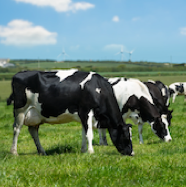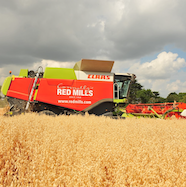A Nutritionist’s Guide on Introducing Concentrates to Calves
Early development of the calf is crucial to their overall long-term health. While many factors limit productivity and longevity in the herd, a well-managed early calf programme will set the stage for maximum lifetime productivity. That is why it is important to pay close attention to a calf’s feeding programme.
Introducing Concentrates and Hay to Young Calves is the Foundation for Growth and Skeletal Development.
To encourage extra growth of the calf, it is important to introduce concentrates from a young age. The components of this concentrate are extremely important and should be high in protein for skeletal development, along with effective fibre for rumen development. The availability of hay is also a key contributor factor, as it will promote villi growth in the calf’s stomach, which in turn enables the rumen to benefit as much as possible from its feed. Freshness, texture, and digestibility are essential to encourage early intake.
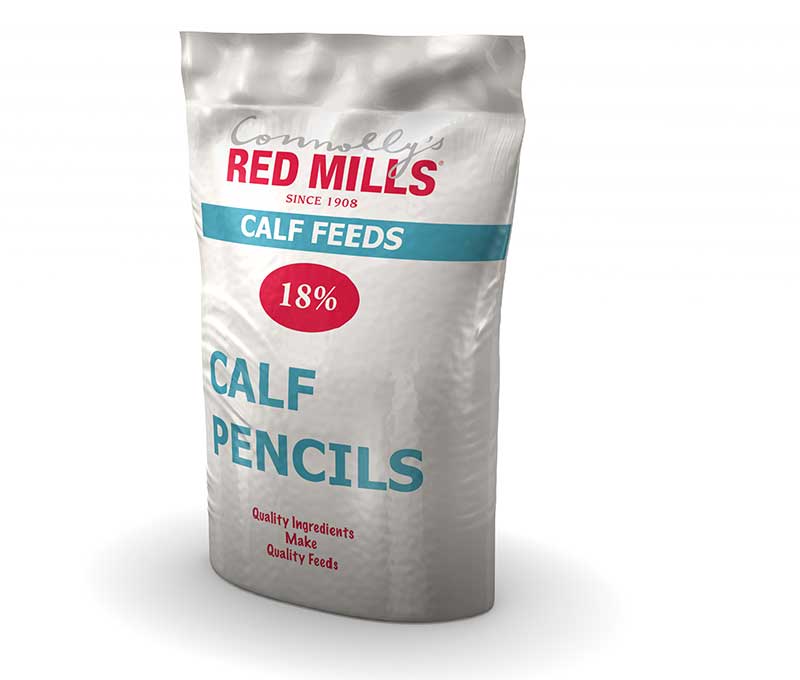
When and how to introduce Concentrates to Calves
Introduce concentrates at 1kg per day for the first month. A Connolly Red Mills 18% No.1 Calf Cooked Starter Mix is highly recommended and can be increased up to 2.5kgs after 8 weeks.
Following on from this, calves should move onto a 18% Calf Pencils or 16% Calf Cube, feeding up to 3kg per day. It is important to remember that introducing concentrates should be done in a slow gradual manner and it is recommended to do so in a twice a day pattern to aid digestion, feed efficiency and conversions. In the first winter of the spring calf, at Connolly Red Mills we would recommend offering the 20% Heifer Replacement Cube to ensure optimum growth rates to achieve target weights for subsequent breeding season.
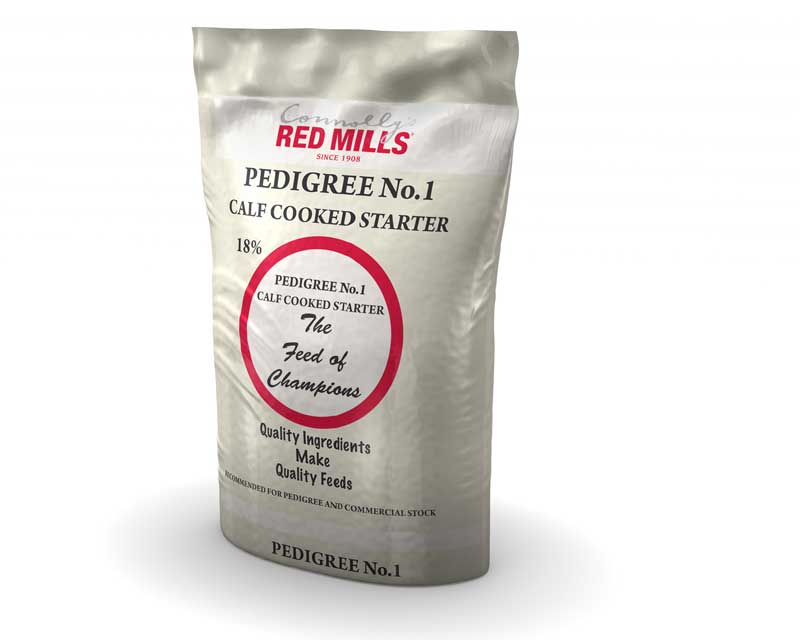
Hydration is crucial for overall health of Calf while Feeding Concentrates
Always ensure sufficient clean water; even in cold weather. Offer fresh water as good hydration is also essential for healthy immune function. For digestive upsets Kaolin powder is a very good electrolyte.
For further information on a healthy calf rearing system, contact the RED MILLS nutrition team.
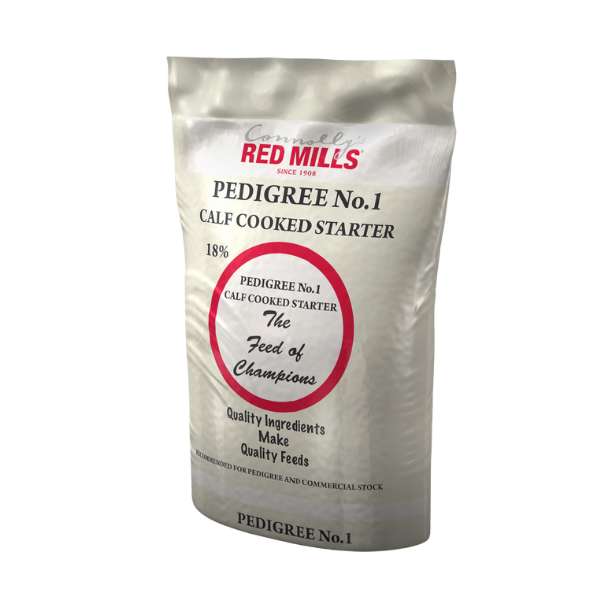
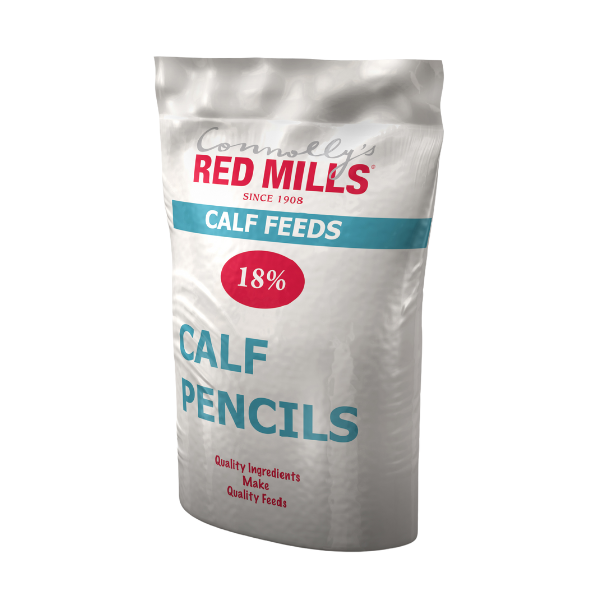
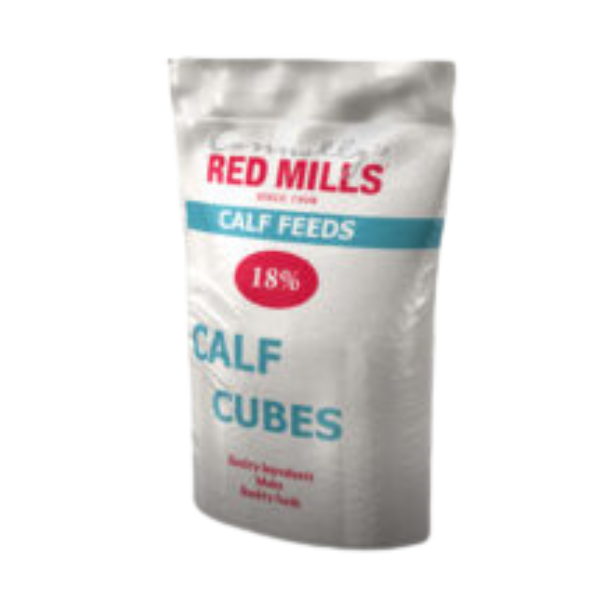
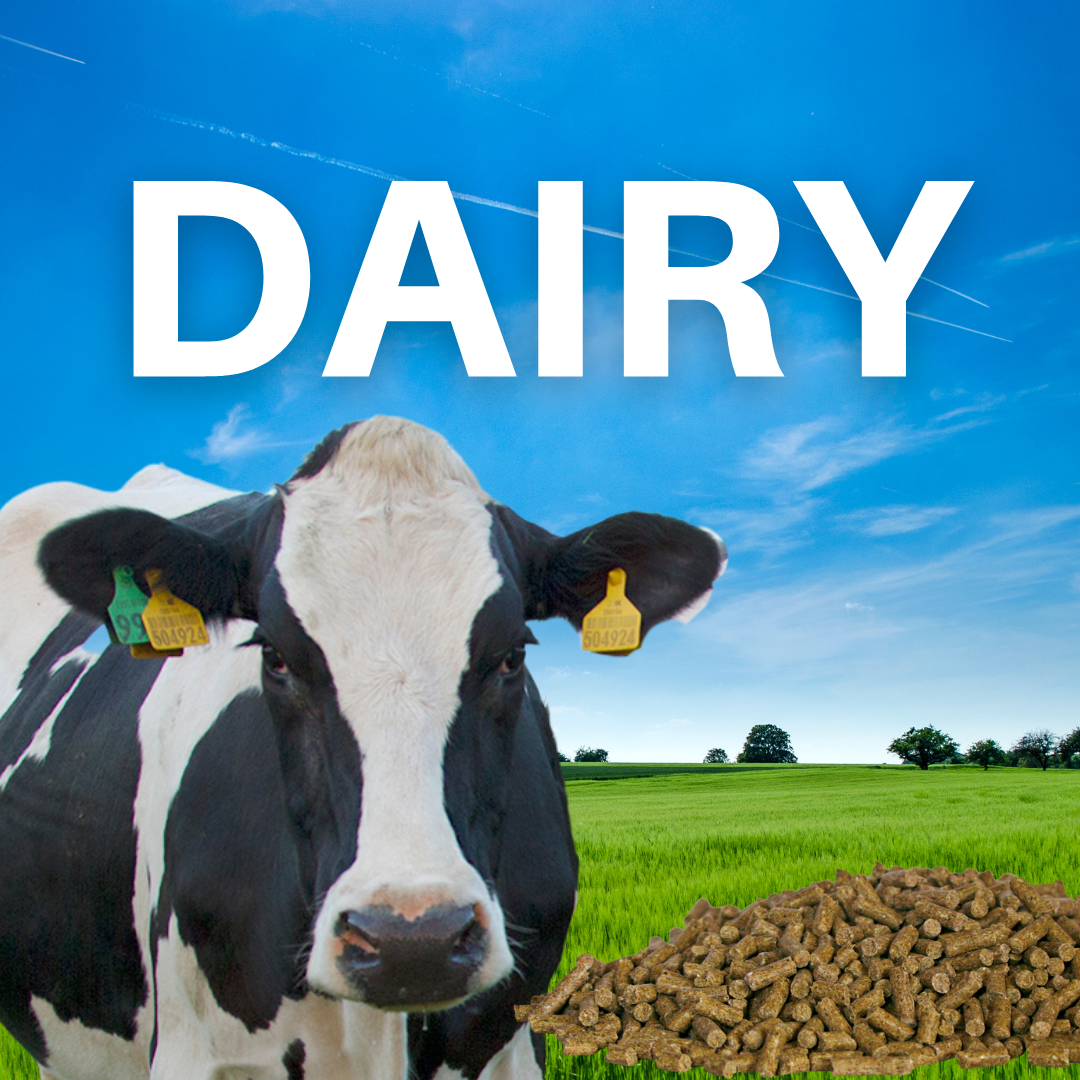
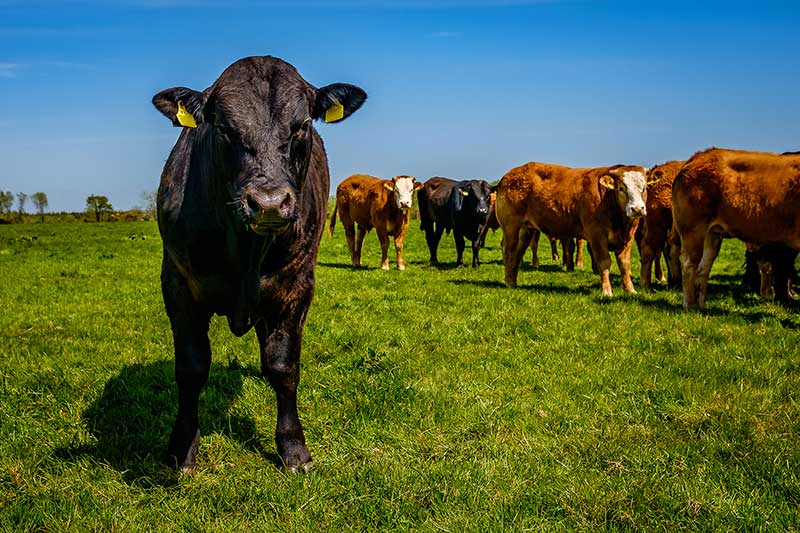
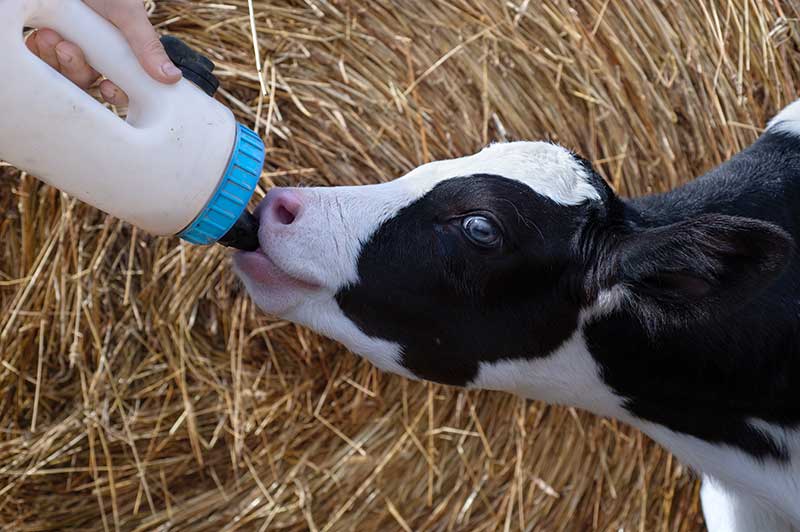
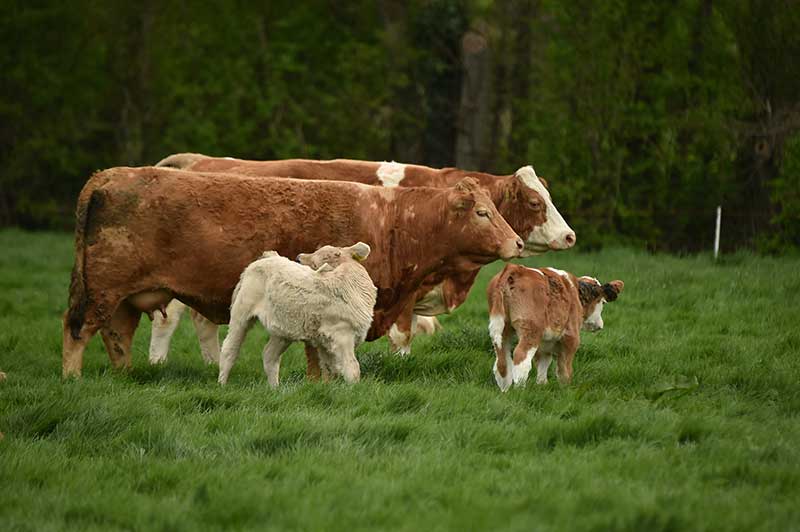
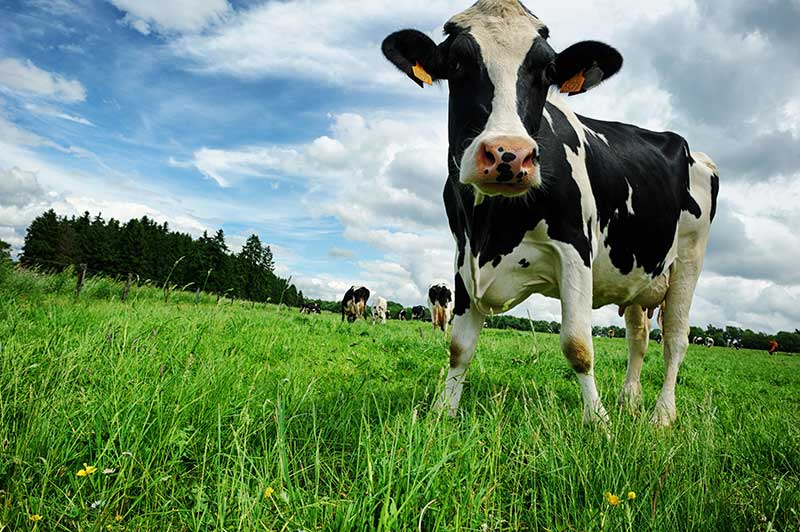


 05
05
